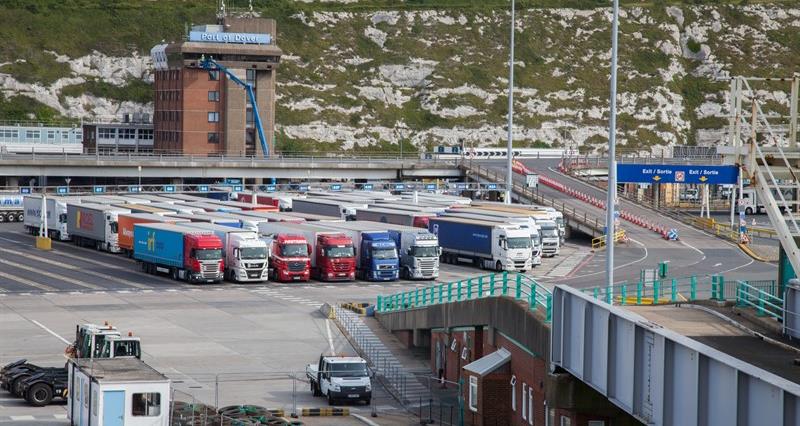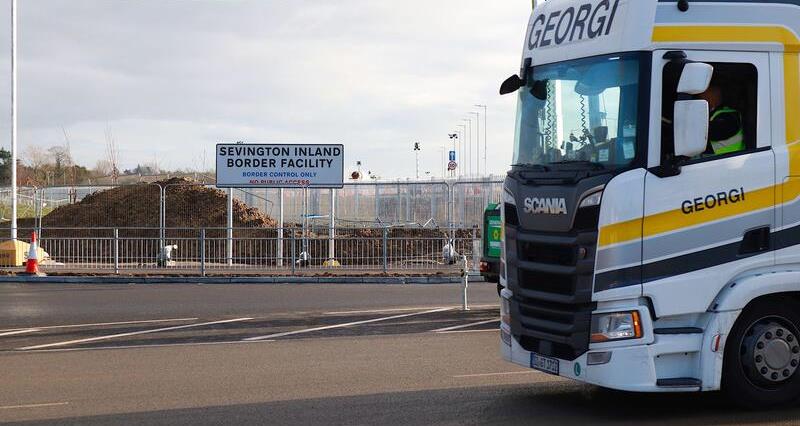The Efra Committee has found the commercial animal and plant imports system is ‘inadequate’, with instances of banned products passing the border unchecked.
In its it says: “Defra has no effective system of oversight for [biosecurity] border controls.”
The Committee highlights a number of concerns, calling the government's BTOM (Border Target Operating Model) flawed, and failing to provide a robust, risk-based regime of inspections, and imposing burdens on businesses while possibly creating incentives and opportunities for criminals.
“Effective import controls are vital to protect our biosecurity, food safety and international reputation.”
NFU President Tom Bradshaw
Unacceptable delays at the border
The Committee has said that the previous government's vision for the UK’s Biosecurity, Borders and Trade Programme has not been realised, which is “not simply an operational concern but continues to present real threats to the health of UK animals and plants and therefore the viability of our agricultural and horticultural sectors”.
MPs criticised Defra for its reluctance to publish inspection rates and called for these to be clarified saying that it is “not convinced that a lack of published data on the inspection rates is due to a desire to protect the integrity of the intelligence system. We have concerns that they are not being published to avoid highlighting Defra's historic noncompliance with its own targets.”
While the UK and EU are currently negotiating a common SPS (sanitary and phytosanitary) area which will remove the need for export health certificates, phytosanitary certificates, certificates of inspection for organics, certain marketing standards certification requirements and border checks, the current arrangements will remain in place until an agreement is reached and implemented.
�ʼһ���has repeatedly warned of the potential for delays following the introduction of the checks. In particular, for horticulture businesses, the shift of controls away from their businesses to BCPs (border control points) adds an additional risk to a highly bio-secure, ‘just-in-time’ supply chain, resulting in long delays, meaning plants are damaged or destroyed, and increasing the risk of contamination at BCPs while the goods are inspected.
Those dependent on importing planting material have faced increased bureaucracy, increased costs and unacceptable delays.
Meanwhile, last week, another Efra Committee report found that ‘alarming amounts of meat and dairy products are now being illegally imported to Great Britain for both personal consumption and sale’. It warned of the high risk of animal diseases that threaten food security entering the UK through illegal meat imports.
Flaws must be addressed
NFU President Tom Bradshaw said: “Effective import controls are vital to protect our biosecurity, food safety and international reputation. That looks different for the individual agriculture sectors dependent on business need, and it is essential the nation’s border controls are implemented in a way that recognises this.
“Livestock businesses need confidence that border checks maintain food safety, with sufficient resources to stamp out fraud and illegal activity.
“There are concerns BCPs could become points of infection rather than inspection, and some UK growers have lost many thousands of pounds due to damage of their goods caused by poor re-loading after inspection.
“We are also hearing of delays at the border causing severe disruption and doubled transport costs. Some EU suppliers have also indicated pulling out of supplying the UK market because of poor experiences and additional costs at BCPs.”
Tom called for a coordinated strategy across government, local authorities and port health authorities, backed by proper investment. He added: “The government must honour its commitment to toughen penalties and address the flaws in BTOM to deliver import controls that are stringent, efficient and proportionate to protect the nation’s biosecurity and the future of British agriculture.”
Efra Committee chair and MP for Orkney and Shetland, Alistair Carmichael said: “In our scrutiny of the control and inspection of commercially imported animal and plant products through UK borders, we found high compliance by law-abiding companies, despite the high costs the system imposes on them and even though they have been subject to uncertainty, short-notice changes and unexpected additional costs. While these companies show high compliance, they do not have confidence that the system is operating fairly.”
Read the report in full at: .



